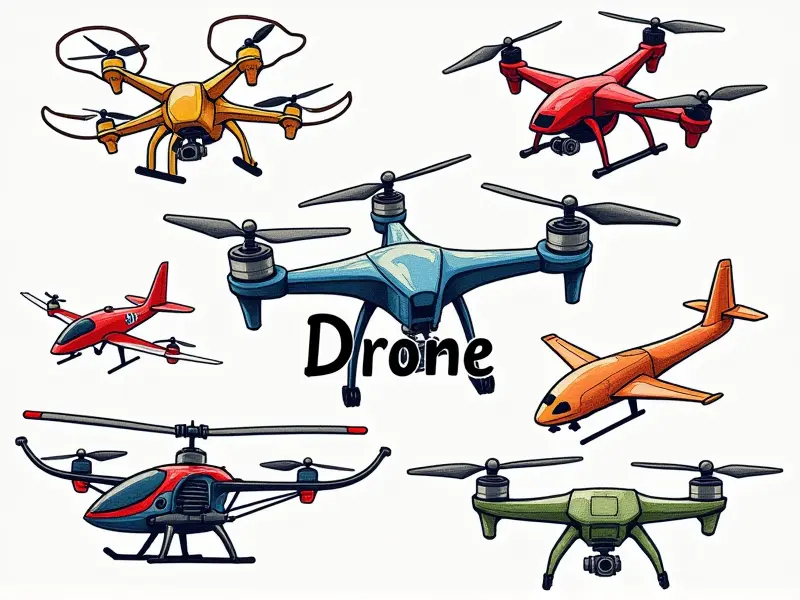Can kids fly RC airplanes?

Are RC Airplanes Safe for Kids?
Flying remote control (RC) airplanes can be a thrilling and educational experience for children, but safety is paramount. Parents often wonder if it's safe to introduce their kids to this hobby. The answer depends on several factors, including the child’s age, maturity level, and the type of RC plane chosen.
Modern RC planes are designed with various safety features such as propeller guards, crash-resistant materials, and easy-to-fly designs that minimize the risk of injury or damage. However, it's crucial to supervise young pilots during their initial learning stages to ensure they understand basic flight principles and safety protocols.
Best Age to Start Flying RC Planes
The ideal age for a child to start flying RC planes is typically around 8-10 years old. At this stage, children have developed enough hand-eye coordination and cognitive skills to grasp the basics of flight control. However, younger kids can still enjoy RC airplanes with adult supervision using simpler models designed specifically for beginners.
Teaching Kids to Fly RC Planes Safely
Introducing a child to flying RC planes requires patience and guidance. Start by selecting an easy-to-fly model that comes with detailed instructions and tutorials. Begin in open, flat areas away from obstacles like trees or buildings. Gradually increase the complexity of flights as your child gains confidence and skill.
Key Tips for Safe Learning
- Choose a Beginner-Friendly Model: Opt for planes with simple controls and robust construction to minimize frustration and potential damage.
- Start Indoors or in Small Spaces: Begin training sessions indoors or in small, enclosed areas where there's less risk of losing the plane.
- Supervise Initial Flights: Always be present during your child’s first few flights to provide guidance and ensure safety.
Fun and Learning with RC Airplanes
Flying RC planes offers a unique blend of entertainment and education. Kids can explore the physics of flight, learn about aerodynamics, and develop problem-solving skills as they troubleshoot issues during flights. The hobby also encourages creativity through model building and customization.
Learning Outcomes for Children
- Aerodynamic Principles: Understanding lift, drag, thrust, and weight helps kids grasp how planes stay aloft.
- Mechanical Skills: Assembling RC models enhances fine motor skills and mechanical aptitude.
- Critical Thinking: Troubleshooting flight issues promotes analytical thinking and decision-making abilities.
Benefits of Flying RC Planes as a Child
The advantages of flying RC planes extend beyond just fun. Engaging in this hobby can foster numerous developmental benefits, including improved hand-eye coordination, enhanced spatial awareness, and increased patience and focus. Additionally, it provides an excellent opportunity for family bonding through shared activities.
Developmental Gains
- Cognitive Development: Learning about flight mechanics stimulates cognitive growth and intellectual curiosity.
- Social Skills: Participating in RC flying clubs or competitions can improve social interaction and teamwork.
- Motivation and Confidence: Achieving milestones in flying skills boosts self-esteem and motivation to learn more.
Parent's Guide to Kid-Friendly RC Planes
Selecting the right RC plane for your child involves considering factors such as ease of use, durability, and educational value. Look for models that come with comprehensive manuals and support resources like video tutorials or online forums.
Additionally, ensure the chosen model is age-appropriate and matches your child’s skill level to prevent frustration and enhance learning outcomes.
Age-Appropriate RC Airplane Models
The type of RC plane suitable for a child depends on their age and experience. For younger children (ages 5-8), opt for simple, durable models with large control surfaces that are easy to maneuver. Older kids (9-14) can handle more complex designs with smaller wingspans and higher performance capabilities.
Best Beginner RC Airplanes for Kids
Several brands offer excellent beginner-friendly RC planes designed specifically for young pilots:
- HobbyZone Sport Cub S: Known for its stability, ease of use, and robust construction.
- Precision RC P-51 Mustang: A classic model with detailed features and beginner-friendly controls.
- Cybertron RC Airplane: Compact size makes it ideal for indoor flying and learning basic maneuvers.
Skills Kids Learn from Flying RC Planes
Flying RC planes equips children with a range of valuable skills, including:
- Aerodynamics: Understanding the principles that govern flight.
- Mechanical Assembly: Learning to assemble and maintain RC models.
- Problem Solving: Troubleshooting issues during flights or maintenance.
How to Choose an RC Plane for Kids
Selecting the right RC plane involves several considerations:
- Age and Experience Level: Match the model's complexity with your child’s age and skill set.
- Safety Features: Opt for planes with propeller guards, crash-resistant materials, and easy-to-fly designs.
- Support Resources: Choose models that come with detailed manuals, video tutorials, or online forums.
RC Airplane Kits Suitable for Young Pilots
Kits offer a more hands-on approach to learning about RC planes. Look for beginner kits that include all necessary components and clear assembly instructions:
- HobbyZone Sport Cub S RTF Kit: Ready-to-fly with comprehensive support materials.
- Precision RC P-51 Mustang RTF Kit: Detailed model with easy-to-follow assembly guides.
Conclusion
Flying remote control airplanes can be a rewarding and educational experience for children when approached safely and appropriately. By choosing the right age-appropriate models, providing proper guidance, and fostering an environment of learning and fun, parents can help their kids develop valuable skills while enjoying this exciting hobby.

